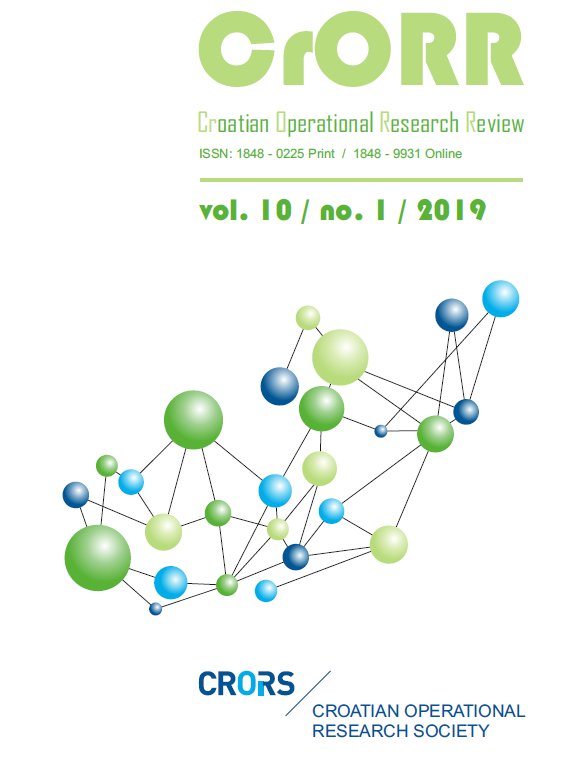Fuzzy expert system for land valuation in land consolidation processes
Abstract
Land fragmentation is one of the main obstacles to sustainable agricultural and rural development. The main goal of sustainable agriculture development is the production of food by the synergy of economic, social and ecological requirements. The ineffective and defective legislation and even its complete absence have led to land degradation globally. The most adaptable and globally recognized method that has the effect to solve the existing land fragmentation and to prevent the trend of even more intensive land fragmentation is the method of land consolidation. Land consolidation is carried out in a way that each participant in the process of land consolidation gets new land of equal value, with land value reduction for general and common needs of settlements and participants of consolidation. The value of the land included in consolidation process is determined and shown in land consolidation assessment which is conducted by land classification in the defined classes, and the value in the land consolidation evaluation is shown in the estimation units. The estimation unit is the relative relation between the exemplar cadastral parcel and the cadastral parcel which need to be valued, taking into account all the relevant factors that can affect the land valuation. This paper proposes a model of land classification in the evaluation classes based on the Fuzzy Logic Method. The paper aims to develop an expert system that would improve and optimize the process of relative valuation of agricultural land as one of the critical steps in the implementation of the land consolidation. The proposed expert system would provide effective support in conducting the negotiation procedures and planning of land consolidation implementation with the involvement of different stakeholder groups with different requirements and wishes. The model will be validated for agricultural land on the island of Hvar in the Split-Dalmatia County.
Downloads
Published
Issue
Section
License
- Authors retain copyright and grant the journal right of first publication with the work simultaneously licensed under a Creative Commons Attribution License that allows others to share the work with an acknowledgement of the work's authorship and initial publication in this journal
- Authors are able to enter into separate, additional contractual arrangements for the non-exclusive distribution of the journal's published version of the work (e.g., post it to an institutional repository or publish it in a book), with an acknowledgement of its initial publication in this journal.
- Authors are permitted and encouraged to post their work online (e.g., in institutional repositories or on their website) prior to and during the submission process, as it can lead to productive exchanges, as well as earlier and greater citation of published work (See The Effect of Open Access).


